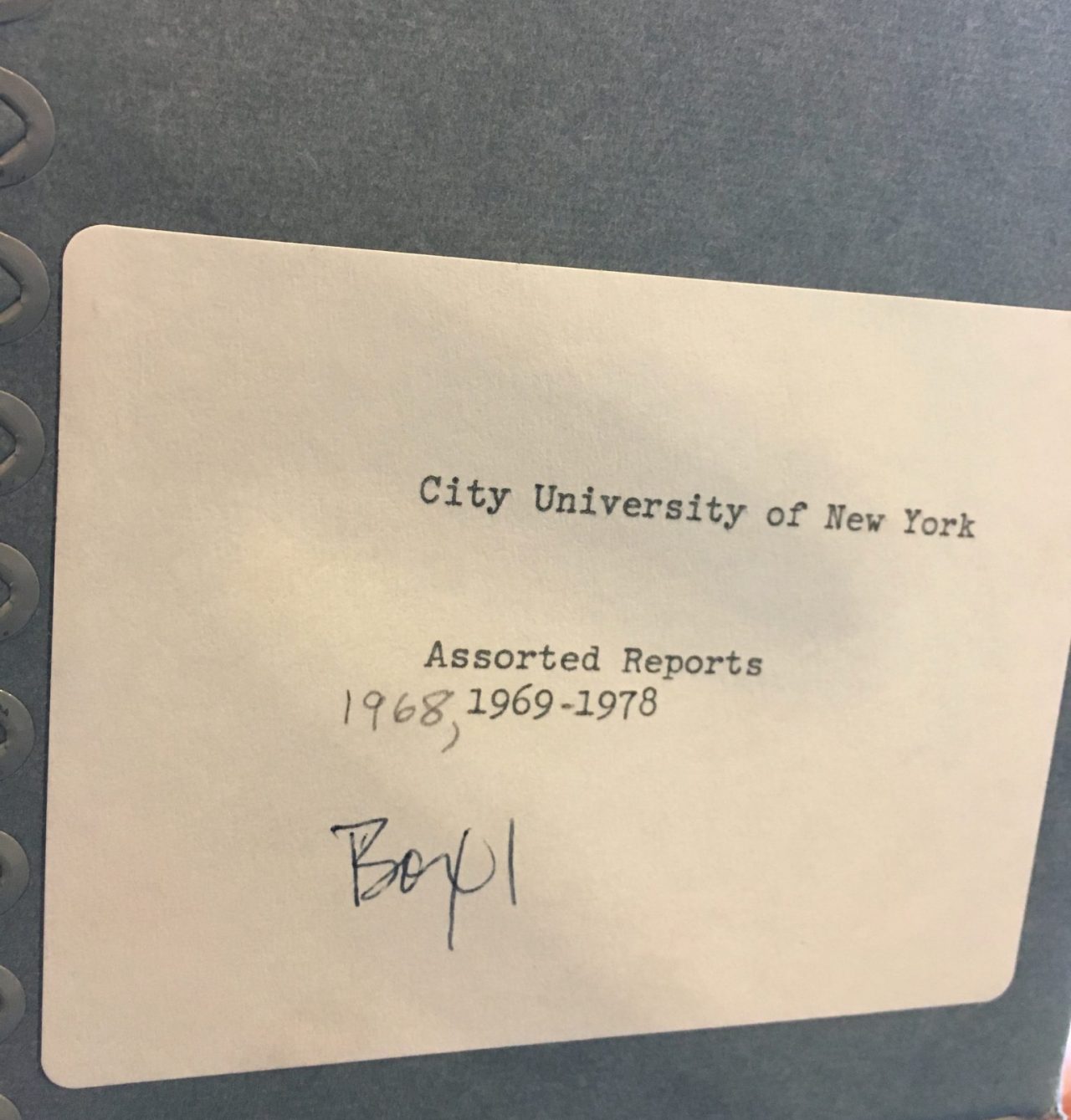We took our first visit to the archives today!
When we arrived, Jessica Wagner-Webster, the Digital Initiatives librarian at Baruch, had pulled some materials that she thought we might find helpful. First, she showed us four student yearbooks from the years between 1969-1972: the year before the start of open admissions, and two years after its implementation.
Jessica pointed out how different the books were in their style and in their content. The 1969 book looked much more like a “traditional” yearbook, but the one from 1970 (which would have been the year before open admissions began, since it started in the fall of 1970), was full of mostly pictures of various protests. It was unclear whether the people in the pictures were Baruch students, New Yorkers, or residents of another city because there was very little other text or contextualizing information, but it was such an interesting artifact of the time.
The 1971 book was very multimodal. It was shaped like a box, and it contained a record, a literary magazine, a poster, a few booklets that gave information about students and clubs, and a booklet with pages that were completely blank, among a few other things. There was also message from the editor that mentioned that the staff wanted to make something that was a complete departure from all other books that had come before it. The message indicated that the previous book (the one with the protest pictures) wasn’t very well received.
The 1972 book had a long, somewhat rambling essay on whether or not Open Admissions was a success, but the essay cuts off in the middle and doesn’t resume. I wondered whether this was an intentional editorial choice or an error.
I (Lindsey) was also really interested in a conference proceedings booklet that I found in one of the boxes, which included a keynote and several other speeches from CUNY’s first-ever Open Admissions conference in 1971. The conference was lead by Allen Ballard, the Dean for Academic Development at CUNY at the time, who initiated the SEEK program and whose oral history appears in the CUNY Digital History Archive (CDHA).
The keynote speeches were fantastic. I was particularly interested in a speech by Melvin Taylor, the principal of Benjamin Franklin High School an a CCNY grad himself, and I was also really interested in this talk given by a math faculty member about why the remedial tests in reading and math fail to test what they suggest that they’re testing. This essay feels especially relevant today, considering the recent conversation in New York City about racial discrimination and the tests used to place students into specialized high schools.
When we got back to the center, we started to map out which archival materials we had found, which game-based learning models we wanted to learn more about, and which kinds of skills and learning goals we could see this game addressing across a wide variety of courses. Here’s what those lists looked like:



Tomorrow, we’re going to do some brainstorming about the structure of the game based on what we found. Looking forward to it!
